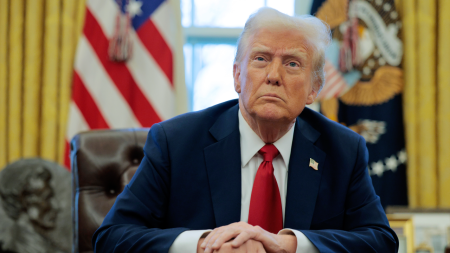The Biden administration recently published draft guidance to allow federal government agencies to invalidate patent licensing agreements. Officials claim the guidance, if finalized, will give them a new tool to reduce drug prices.
However, the plan is much more far-reaching than the insidious effect it will have on Big Pharma. In fact, the impact will be quite severe for small businesses across a variety of industry sectors that require certainty to raise capital to bring their innovations to the marketplace.
Specifically, the proposed guidance involves the Bayh-Dole Act, a 1980 law that empowers universities, small businesses and nonprofits to retain and leverage patent rights for discoveries that have been seeded or helped through federal grant dollars. Through Bayh-Dole, research institutions working with innovators and entrepreneurs can license the patents for further development.
CONGRESSIONAL REPUBLICANS CELEBRATE SBA COLLECTING ON MORE COVID LOANS AFTER PRESSURING AGENCY
Previously, the government had retained the patent rights on discoveries that resulted from federally funded research projects. The private sector had little incentive to license those discoveries, since the government could have granted licenses to rival firms.
Investors and innovators stayed far away from discoveries that lacked intellectual property (IP) protections, so most discoveries sat on university shelves. Taxpayer dollars were wasted.
The bipartisan Bayh-Dole Act helped to spur America’s innovative economy by providing businesses an incentive to bring federally supported discoveries to market. From 1996 to 2020, the system created by Bayh-Dole contributed up to $1 trillion in U.S. economic output and helped launch more than 17,000 new startups.
This success is a testament to the effectiveness of property-rights protections. Small firms disproportionately take on the difficult and risky work of licensing early-stage research and raising the venture capital that turns discoveries and inventions into real-world products.
Indeed, 96% of firms in patent-intensive industries are small businesses.
Without IP protections, raising capital and risk-taking become much more difficult. Thankfully, lawmakers on both sides of the political aisle recognized this dynamic and the critical role that small businesses play in our innovation economy.
Congress established the Small Business Innovation Research and Small Business Technology Transfer programs in 1982 and 1992, in order to further harness and propel this productive activity.
These programs have provided billions of dollars in seed funding for small businesses that engage in advanced and high-tech innovation. Due to their success, Congress has reauthorized these programs several times.
Shockingly, the Biden administration’s plan would effectively mark the end of these programs. That means the heart and soul of America’s innovative economy is at risk.
The administration’s guidance instructs federal agencies to reinterpret a section of Bayh-Dole concerning “march-in” rights. As it currently stands, federal agencies can relicense patents on government-funded inventions in an extremely limited set of circumstances, such as when the original licensee fails to develop the discovery.
The law’s architects included this provision to prevent companies from licensing taxpayer-funded research discoveries and then sitting on them.
March-in rights were never intended to be used as a de facto price control.
Yet the Biden administration is now asserting that federal agencies can “march in” on patents when a company “has commercialized the product, but the price or other terms at which the product is currently offered to the public are not reasonable” — a dangerous interpretation of the law that every presidential administration has rejected, until now.
If federal agencies can invalidate exclusive patent rights every time they consider a product “unreasonably priced,” the key incentives for companies to risk capital would be destroyed.
The White House says this overly broad interpretation of Bayh-Dole would promote “equitable access to lower-priced taxpayer-funded drugs.” That may be a politically popular soundbite. A true read of the plan, however, indicates that the administration knows just how far-reaching its consequences would be.
The new framework indicates that “march in” can be deployed across all technologies in all sectors, with automobile technology and water purification mentioned explicitly.
This success is a testament to the effectiveness of property-rights protections. Small firms disproportionately take on the difficult and risky work of licensing early-stage research and raising the venture capital that turns discoveries and inventions into real-world products.
The Biden administration is poised to weaken U.S. innovation and competitiveness. The plan to seize patents at will jeopardizes countless entrepreneurial firms and the jobs they create.
Small business owners can only hope that the bipartisan spirit that created Bayh-Dole will re-emerge to dispatch this misguided proposal. Or perhaps cooler heads will prevail at the White House and push President Joe Biden to withdraw this politically driven and economically destructive proposal.
Karen Kerrigan is president & CEO of the Small Business & Entrepreneurship Council.
Read the full article here
















